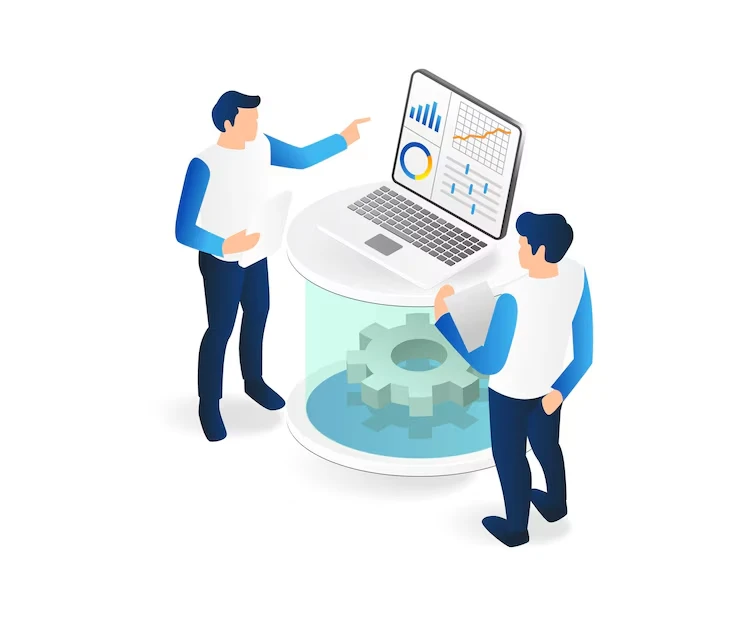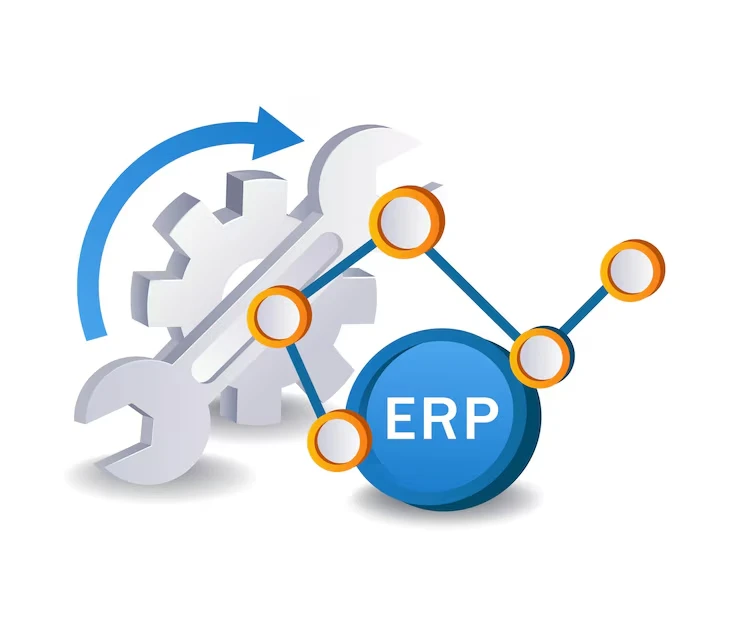
Send Us mail
Speetrance offers a range of ERP Software services for all Business all over the industry
ERP Implementation Services: A Comprehensive Guide for Businesses
In the rapidly changing business world, companies are always looking for methods to simplify their processes and increase efficiency. The most efficient ways to accomplish this is through the use of Enterprise Resource Planning (ERP) software. ERP software functions as an integrated platform that integrates different business functions, like manufacturing, finance, HR and sales to form a single, integrated system.
ERP implementation Services in India, Dubai, Saudi Arabia, Qatar and Kuwait is complex and needs careful preparation, customizing and assistance. This article we’ll discuss the importance of ERP software for implementation as well as the benefits it can bring and the issues businesses could encounter, and how working with an expert company for an enterprise level software development company will ensure the success of your ERP implementation.
Over the last 8+ Years we made an impact that is strong & we have long way to go.

What is ERP Implementation?
ERP implementation solution is the procedure of installing the system, configuring, customizing and the integration of an ERP system into the business’s operations. The process generally involves a number of steps, such as:


1. Planning and Preparation
Prior to when you install ERP software the company must clearly define its needs and objectives. This is the process of identifying business processes that require to be improved, choosing the most appropriate ERP software, as well as then establishing an elaborate plan for the project.
2. System design and customization
After the ERP program is selected, it’s customized to meet the company’s particular requirements. This could mean customizing the features of the software, creating custom reports, or connecting your ERP system with other software tools.
3. Data Migration
The migration of information is among the most crucial elements in ERP implementation. Data from previous systems need to be transferred to the brand new ERP system and needs careful planning to prevent the loss of data or the corruption.
4. Test
After the customization and migration of data After data migration and customization, the ERP system is tested thoroughly to ensure it operates effectively and complies with the business’s specifications. This process helps identify any potential problems before the system goes live.
5. Assistance and Training
Employees should be taught how to utilize the new ERP system efficiently. Training should cover the basic features of the system and advanced features specifically tailored to specific areas. Continuous support is vital to deal with any issues that may arise when the system is first launched.
6. Go-Live
After testing is finished and employees have been properly educated after which it is time to launch the ERP system is officially launched and the business begins using it in its everyday activities.
7. post-implementation review
After the system goes operational, it is crucial to review its performance and pinpoint areas of improvement. The feedback from users and performance indicators will help to improve the system, and make sure it is in line with the long-term goals of the company.
Role of an Enterprise Software Development Company in ERP Implementation
Analyzing Requirements
Data Transfer
Modification and integration

Education and support
Partnering with a trusted partner will assist you in avoiding common mistakes and make sure it is completed on time and within budget. ERP implementation is done in time and on budget.
What is ERP Software?
ERP software provides a complete suite of software that integrates different business functions in one platform. It aids businesses to automate processes like accounting and procurement human resources, inventory management and much other areas. Through providing a central repository of information, ERP systems enhance visibility and enhance decision-making capabilities.
Contemporary ERP software has advanced from basic accounting systems to more robust platforms that can support live data analytics, hosting on cloud as well as mobile access. customized ERP Software options are offered, allowing companies to customize the software to their own specific requirements and workflows.

Benefits of ERP Software
- Increased Performance: A single of the greatest benefits for ERP programs is automated handling of manual work. By eliminating repetitive procedures, companies can improve their efficiency, decrease errors and accelerate the decision-making process.
- Data-Driven Decision Making: ERP systems gather and centralize information from various departments, allowing businesses to have current and accurate data. This allows decision-makers and managers to make educated decisions using real-time information, that can result in better business results.
- Enhance Collaboration: Because ERP software integrates various functionalities, it promotes enhanced co-operation between the departments. Teams can seamlessly work and access shared data and collaborate on projects that increase productivity.
- Cost savings: Through enhancing efficiency and automating crucial procedures, ERP systems can significantly reduce operational expenses. Companies can cut costs on labor-intensive tasks, decrease cost of inventory, and improve the allocation of resources.
- Scalability: If your business expands the ERP system will adapt to your growth. The latest ERP software is extremely adaptable, which means it can handle increasing demand, new users, and even new processes, without the need for an overhaul of the entire system.
- Regulatory compliance: A lot of ERP systems come with built-in compliance features to ensure that your company’s compliance with the regulations and standards of your industry. This is crucially important for industries like finance, healthcare manufacturing, and healthcare, where compliance is a must.
Choosing the Right ERP Software
The selection of the best ERP software is vital to an effective implementation. Companies should take into consideration the following elements when selecting the right ERP system:
- Specific to the industry: Industries with different needs have their own specifications. For example, manufacturing businesses require ERP systems that handle scheduling production and management of inventory, whereas retail businesses need strong point-of-sale systems and the management of customer relationships (CRM) capabilities.
- Scalability: As your company expands and expands, your ERP system must be able to expand to meet your needs. Make sure that the ERP software is able to handle more customers, transactions, and volumes of data.
- Modification Options: An ERP system that is reliable can be customized. The ERP program you choose to customize can be adapted to your specific business workflows and processes, providing solutions that meet your particular requirements.
- Cloud in contrast to. on-premise: ERP software may be hosted on premises as well as in cloud. Cloud-based ERP systems provide flexibility access, accessibility, and lower initial costs while on-premise systems give greater protection and control.
- Reputation of the vendor: The reputation of the vendor as well as expertise in ERP implementation is essential. Partnering with a reputable Enterprise Software Development Firm will ensure that the process is seamless and you get all the support you require throughout the entire process.
- Integration Capabilities: ERP systems should seamlessly integrate with the other tools and software used by your company. In this way, information flows seamlessly between the systems to eliminate silos and enhance the process of making decisions.
- User Interface: An easy-to-use interface is crucial to ensure that employees are able to navigate the ERP system easily. If the ERP system is too complicated or difficult to navigate, it can cause a low rate of adoption.

Conclusion
ERP Implementation of ERP is a crucial project that could change the way companies operate. With the proper ERP software, businesses can reduce the time spent on processes, boost decisions, and increase collaboration between departments. However, a successful implementation is dependent on careful planning, customizing and assistance.
When choosing the best ERP software and working with a skilled business software development company to ensure that their ERP system is in place quickly and effectively. If you choose to go with a standard ERP solution or a customized ERP software the key to success is selecting the right solution that is compatible with your business’s specific needs and objectives.
In spending money on ERP implementation, companies can prepare themselves for the long term, and gain an advantage in competition and establishing their business for growth in a digitally-driven world.
Have any Question to our team?


